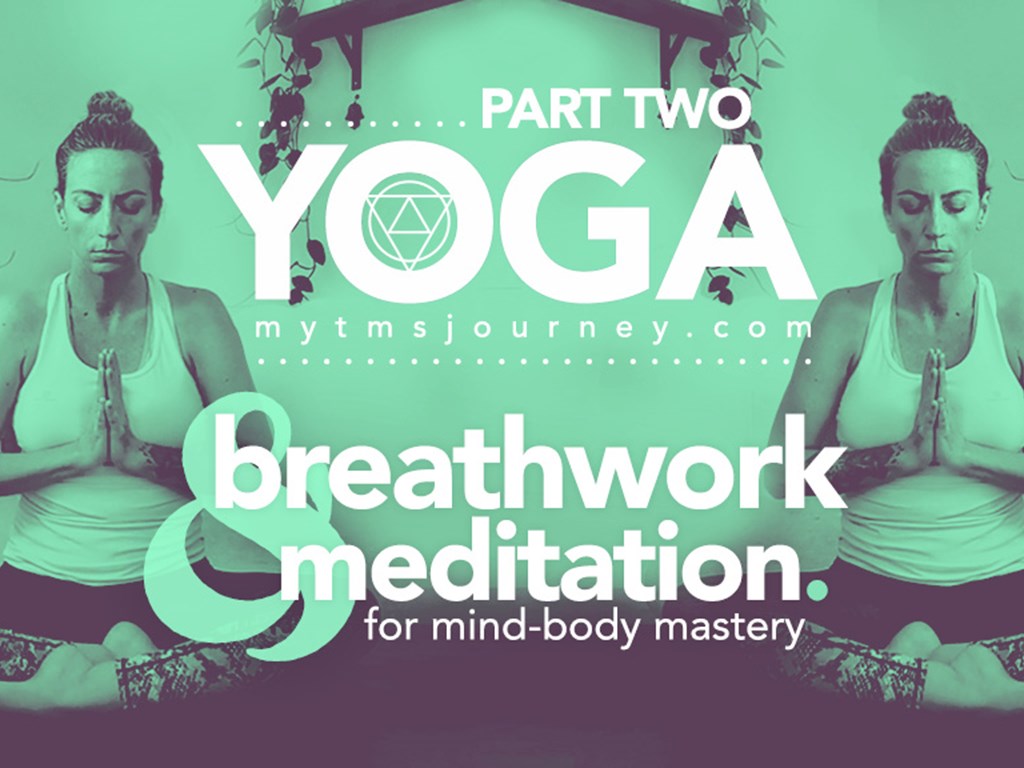Please check your Spam/Junk folder if you cannot see the email in your inbox.

https://mytmsjourney.com/resources/breathwork-and-meditation-for-mind-body-mastery-part-two/

As I mentioned in PART ONE, traditional yoga is much more than just physical movement. The type of yoga I practice and now teach to the TMS Community encompasses breathwork and mediation as part of the daily practice, which honestly, I feel has even more impact on the mind and body than the physical practice and offers a broader benefit to our mental health.
When I started yoga I had no idea of the power that these two elements had, there are many forms of yogic breathwork that we can explore in our practice, but the benefits are similar for all varieties.
Regular meditation activates the parasympathetic nervous system (our coveted 'rest and repair' mode) and quietens the sympathetic nervous system (fight or flight mode) which is the HOLY GRAIL OF TMS RECOVERY. If that were the only benefit of this work, it would be SO worth practising this alone. But medical studies have shown that daily meditators also have lower blood levels of epinephrine, norepinephrine, and cortisol - the all-important trio of stress chemicals.
The number of benefits that meditation has is pretty mind-boggling, check this out:
Meditation teaches us mindfulness, which in essence is the ability to maintain a moment-by-moment awareness of our thoughts, feelings, bodily sensations, and the surrounding environment - a massively important of TMS recovery.
It also broadens our level of compassion to ourselves and to others, teaches us to practice patience, gives us better focus and productivity and actually rewires our brains to experience much less stress and anxiety in general.
Mindfulness, when practised regularly, gives you the opportunity to settle your nervous system without doing ANYTHING at all and can be practised anytime, anywhere. For example: take a moment to witness what's in front of you right now. Maybe it's your phone or your computer. What else is around you, what do your clothes feel like on your skin? Look at the detail in the room around you, take ten minutes right now to just notice, sounds, smells, feelings. Witness everything in your environment. Zone out from your brain's banter and get into the NOW. This is mindfulness and its power to settle an overactive nervous system is dramatic.
Mindfulness is something that modern medicine simply cannot touch, teach or influence in any way. This has been one of the most impactful elements of meditation in my recovery journey.
Although meditation is inherently incredibly relaxing, it is actually considered a workout for the brain. Regular practice has been scientifically proven to actually CHANGE the composition of the brain in the following ways:
I'm convinced that yoga will change YOUR life like it did mine, and it's the PERFECT partner to TMS recovery practices... The specific yoga method I have created for TMS recovery combines gentle physical movement, breath and meditation together. Focusing on calming the nervous system, teaching the brain that we are safe and well, and comforting our hurting bodies and hearts. An ideal way for us to connect to ourselves and as a community, check out the many regulating classes available in the Mindful Movement and Rest & Regulation sections of my Mind-Body Mastery Membership.
The free Recovery Journey Roadmap is a great place to start understanding mind-body medicine, then when you're ready, check my Mind-Body Mastery Membership - the ultimate recovery toolkit with everything you need to heal all under one roof. Further details on all the ways I can help you are outlined here, including private coaching. Let's connect on social media, I'm on Facebook or Instagram or contact me here.
Discuss this with me on your preferred social channel
In order to protect your privacy we require that you verify your email address. We have sent you an email with further instructions. As soon as you have verified your email please return here and then click the button below.
Please check your Spam/Junk folder if you cannot see the email in your inbox.
To receive new content and updates, please sign in using one of the following options...
To save and rate your favourite articles and subscribe for new content updates please sign in using one of the following options...
Important : Do not choose this if you are not on your own computer or device.
You can change your preferences or delete your account at any time.
